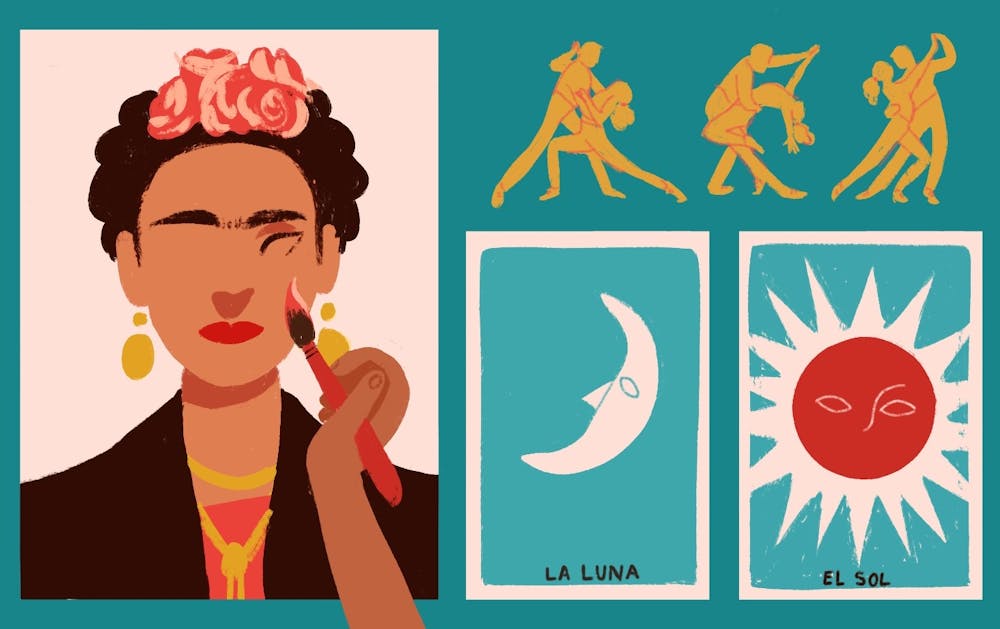As a Latina woman, Hispanic Heritage Month evokes memories of family and friends, reminding me of where I come from. But the month is a lot more than just my memories and transcends beyond just a month.
The month honors the histories, cultures and contributions of people whose ancestors came from Mexico, Central and South America, the Caribbean and Spain. Several Latin American countries' days of independence also occur during this month of celebration.
Ada Martin, president of Chicano/Latino Faculty and Staff Association (CLFSA), an organization that advocates for Chicanos and Latinos at ASU by addressing issues that are important to those communities, said the month is meant to bring awareness to the differences and similarities within the communities.
"It's important to highlight that Latinos are a beautiful rainbow of experiences and cultures that should be celebrated and equally highlighted," Martin said.
Martin is Afro-Latina and said there is an underrepresentation of that specific community when it comes to conversations about and depictions of Latine culture.
"Although our contributions to Latin America are often ignored and minimized, it is undeniable that Africa resides in Latin America," Martin said. "It is visible through the food we eat, the way we dance, the music we listen to and the religions that many of us practice."
Being aware of the different Latine communities that make up a large and diverse Latin America is important because although they share similarities, no two cultures are the same, Martin said.
My own Mexican heritage shares some characteristics with Martin's heritage, but each culture has its own customs, foods, music and traditions that make each community unique and feel like home.
I am reminded of home when I hear the song "Asi Fue" by Isabel Pantoja, because my mother would blast it at full volume as she showered, or when I eat my mother's refried beans, because they are her signature dish that everyone loved at home.
My definition of home and culture may be different from someone else who is Latine, but the similarities I do share with other Latine people make community something I can find just about anywhere.
Daniel Haros, a fourth year student studying mechanical engineering and president of the Society of Hispanic Professional Engineers (SHPE), honors the similarities he can identify within other Hispanic members because that's how he has found a community of support while at ASU, he said.
"Inherently I can share a lot more with people who are (Hispanic), even if it's a little different, we find something in common," such as music taste, childhood similarities, or family customs, Haros said.
As president of SHPE, Haros has helped several other Hispanic STEM students by providing them with resources to build their resumes, attend mock interviews and attend events with successful Hispanic speakers so students can envision their own success in competitive fields like engineering.
He does this because he thinks it's important to give back to a community that has given so much to him, he said.
Haros joined SHPE as a freshman and he has experienced how important it can be for Hispanic and Latine students to find someone they can identify with and share a strong sense of community with, he said.
“We can celebrate each other's presence with one another,” Haros said.
When I'm surrounded by other Latine people, I instantly feel more understood. Several Latine people I have met understand that feeling of homesickness after leaving their environment. Others understand what it feels like to lack a sense of community and culture when they are no longer surrounded by other Latine people.
ASU has a number of events for students to attend across campuses to help celebrate Hispanic Heritage Month with art shows, Lotería games and expert lectures.
Ernesto Razo, a freshman studying popular music, attended one event on Sept. 16 celebrating Mexican Independence Day, and said he feels most connected to his culture when he sees it represented in his community.
Razo enjoyed the event because he was surrounded by Hispanic foods, music and activities that reminded him of what home felt like. Events like these bring back good memories and they create new memories in an environment that he feels like he can identify with.
"I can go to an event knowing that I belong there," Razo said.
Reach the reporter at agonz295@asu.edu and follow @adriana_gc_ on Twitter.
Like The State Press on Facebook and follow @statepress on Twitter.
Continue supporting student journalism and donate to The State Press today.




